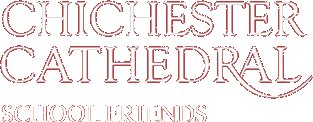British Values at Rumboldswhyke Church of England Primary School
Rumboldswhyke Church of England Primary School is committed to serving the communities of Whyke and surrounding area of Chichester. It recognises the multi-cultural, multi-faith and ever-changing nature of the United Kingdom, and therefore of those it serves. It also understands the vital role it has in ensuring that groups or individuals within the school are not subjected to intimidation or radicalisation by those wishing to unduly, or illegally, influence them.
As a church school, Rumboldswhyke accepts admissions from all those entitled to an education under British law, including pupils of all faiths or none. It follows the policies outlined by its governing body regarding equal opportunities, which guarantee that there will be no discrimination against any individual or group, regardless of faith, ethnicity, gender, sexuality, political or financial status, or similar. It seeks to serve all in the community through its family character and the Christian ethos.
Fundamental British Values are also linked to some of our Worship Themes such as Justice, Respect, Trust, Truthfulness, Peace, Friendship and Compassion.
The Government emphasises that schools are required to ensure that key ‘British Values’ are taught in all UK schools. These values are listed below with details of how they are addressed at Rumboldswhyke:
- Democracy: Pupils have the opportunity to have their voices heard through our School Council and Pupil questionnaires. We actively encourage them to voice their opinions in all learning situations. Children have the opportunities to take part in groups that have a clear impact eg. UNICEF Rights Respecting School, Eco Schools
- The Rule of Law: The importance of laws, we use the term ‘rule’ more in school, whether they be those that govern the class, the school, or the country, are consistently reinforced throughout the school day, as well as when dealing with behaviour and through school worship. Pupils are taught the value and reasons behind laws, that they govern and protect us, the responsibilities that this involves and the consequences when laws are broken. Visits from authorities such as the Police, Fire Service are regular and help reinforce this message.
- Individual Liberty: Within school, pupils are actively encouraged to make choices, knowing that they are in a safe and supportive environment. As a school we educate and provide boundaries for young pupils to make choices safety, through provision of a safe environment and empowering education. Pupils are encouraged to know, understand and exercise their rights and personal freedoms and are advised how to exercise these safely, for example through our E-Safety and PSHE lessons emphasising personal freedoms, choice and respect. Whether it is through choice of challenge, of how they record information, of participation in our after-school sports’ clubs, pupils are given the freedom to make choices.
- Mutual Respect: Much of our school ethos and behaviour policy has revolved around our Christian core value ‘Respect’, and pupils have been part of discussions in worship relating it to what this looks like at school and home.
- Tolerance of those of different faiths and beliefs: Governors agree that a spirit of tolerance combined with an “acceptance” of different faiths and beliefs is more applicable in our society. This is achieved through enhancing pupils’ understanding of their place in a culturally diverse society and by giving them opportunities to experience such diversity. Examples of how this is accomplished include worship themes and discussions covering bullying and coercion have been followed and supported by learning in RE and PSHE and celebrate the background of pupils and their families. Members of different faiths or religions, both pupils and parents, are encouraged to share their knowledge to enhance learning within classes and the school and features of other religions are taught through the RE curriculum.
These values have been discussed with the Foundation Governors and the School Council.



